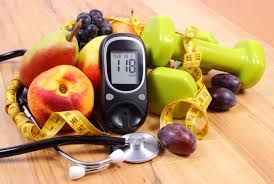High blood pressure can be treated or prevented.
Hypertension is known as the silent killer.
No symptoms, but having high blood pressure increases the risk of heart disease, stroke, heart failure and kidney disease.
Foods that you should avoid if you have hypertension
Blood pressure refers to the force with which the walls of the arteries “push” blood from the heart to the rest of the body. Varies naturally throughout the day depending on the position, activity, stress or as a result of diseases.
When we take blood pressure they will give us two numbers. The first number is the systolic blood pressure, that is, the pressure when the heart contracts to pump its blood content into the circulation, and the second number is the diastolic blood pressure, which is the pressure when the heart relaxes and returns to fill with blood.
Blood pressure values that are defined as
“normal” are:
• Systolic blood pressure: 100 to 139 mmHg
• Diastolic blood pressure: 60 to 89 mmHg.
Foods that help lower blood pressure.
Oatmeal
A review of five scientific studies in about 400 healthy adults found that the systolic blood pressure was 2.7 mmHg lower and the diastolic blood pressure was 1.5 mmHg lower when the participants ate about 60 grams of flakes oatmeal (a half cup of raw oatmeal packed) 25 grams of oat bran every day.
This amount of oatmeal or oat bran contains about 4 grams of a type of fiber called beta-glucan. For each extra gram of total daily fiber, there was a further reduction of 0.11 mmHg in diastolic blood pressure.
Beet.
Beet is very rich in inorganic nitrate, a compound that becomes nitric oxide during digestion, which causes the arteries to dilate, thus reducing blood pressure.
There are many studies that have found that beet juice reduces hypertension.
One such study, made with 68 adults with hypertension were randomized to drink 250 ml (one cup) of beet juice daily for four weeks or a placebo. The results showed that the blood pressure of 7.7 mmHg lower and diastolic blood pressure 5.2 mmHg lower
Vitamin C.
Vitamin C or ascorbic acid, is found in fresh vegetables and fruits.
In a review of 29 trials on the short-term benefits of using vitamin C supplements, I found that people who were given 500 mg of vitamin C every day for 8 weeks showed improvements in blood pressure. With an average reduction in systolic blood pressure of 3.84 mmHg and 1.48 mmHg for diastolic blood pressure.
Food should be avoided if you suffer from hypertension.
Salt.
A high salt intake is associated with higher blood pressure. It is recommended to take more than 5.9 grams of salt (approximately one teaspoon) or 2,300 mg of sodium per day.
A review, which included more than 3,000 people, showed that reducing salt intake by 4.4 grams a day could produce systolic and diastolic blood pressures by about 4.2 mm Hg and 2.1 mm Hg respectively. And in those who already suffered from high blood pressure, the reduction in salt intake produced an even greater decrease: 5.4 mmHg (systolic) and 2.8 mmHg (diastolic).
Alcohol.
The one or more alcoholic drinks per day is associated with systolic blood pressure that is about 2.7 mm Hg and diastolic blood pressure 1.4 mmHg higher than non-drinkers.
Caffeine
High caffeine blood pressure increases in the short term. Caffeine is present in coffee, tea, cola and some energy drinks. In a review of five trials, people who drank 1 or 2 cups of strong coffee had an increase in systolic blood pressure of 8.1 mmHg and 5.7 mmHg in diastolic blood pressure, up to three hours after having it drunk.














